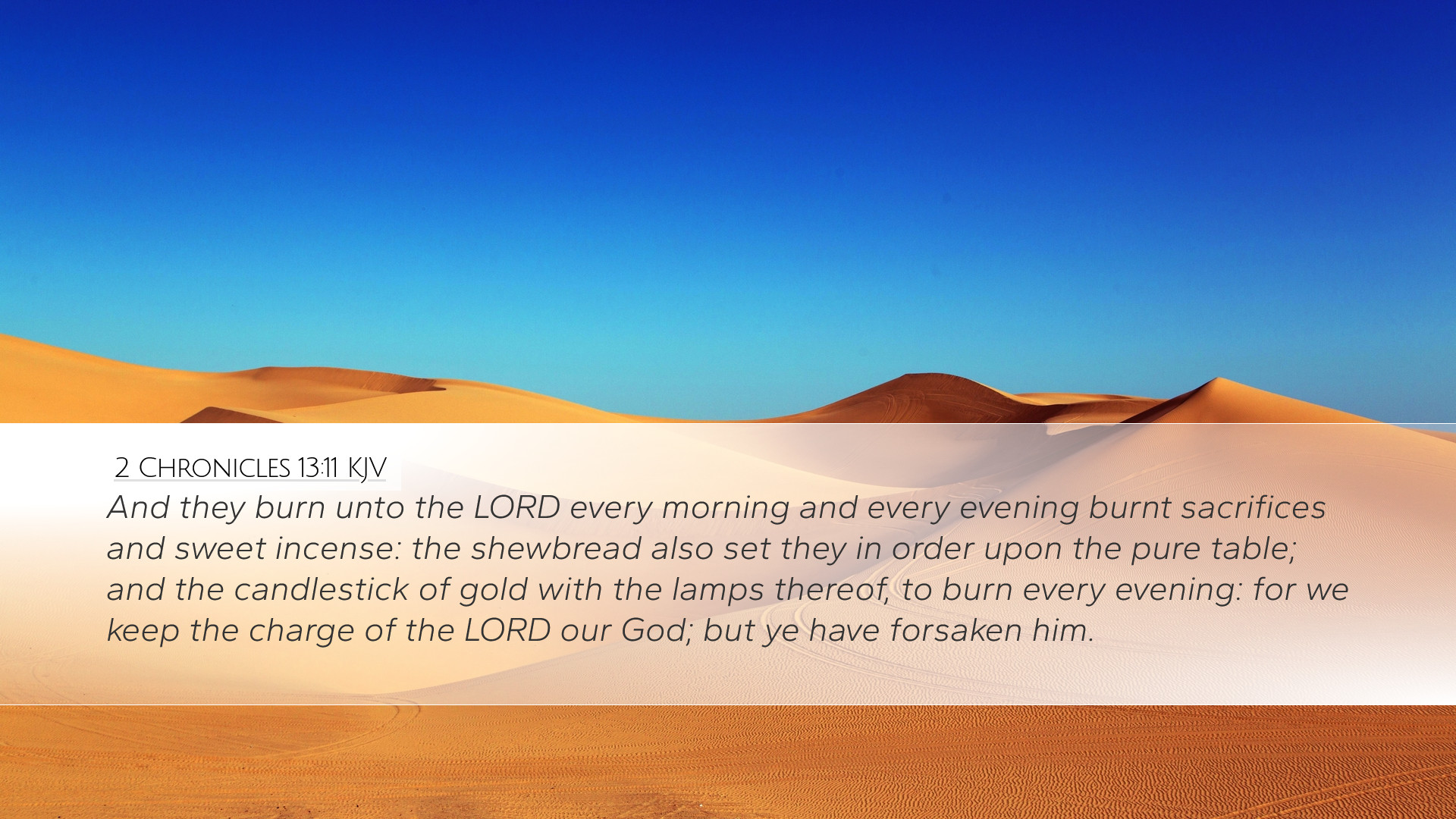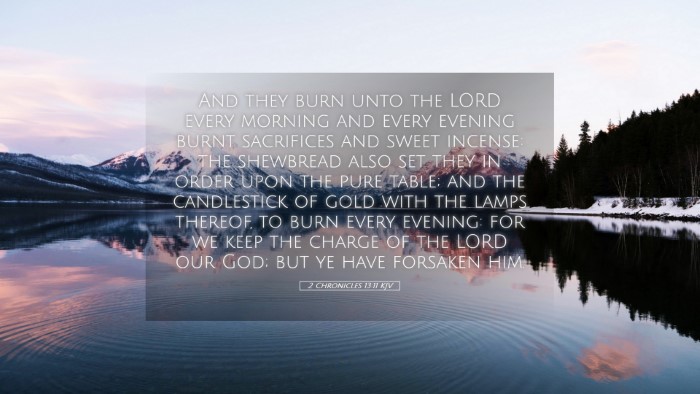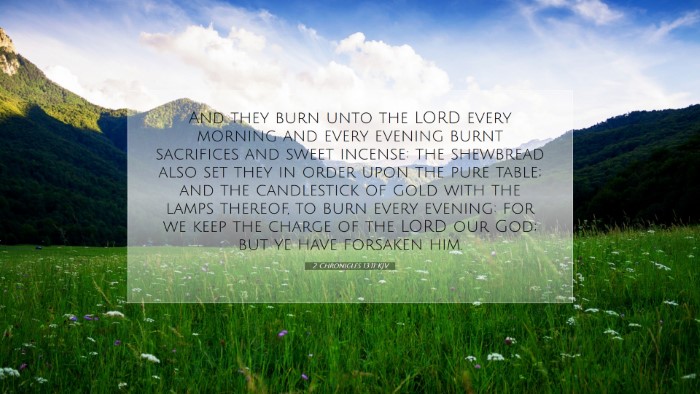Commentary on 2 Chronicles 13:11
Verse Text: "And they offered unto the LORD the morning and evening burnt offerings, and the spices, and the shewbread, and set the baked things upon the pure table; and the candlestick of gold with the lamps thereof, to burn every evening: for we keep the charge of the LORD our God; but ye have forsaken him."
Introduction
This verse encapsulates the religious practices and priorities of the people of Judah under King Abijah during a time of conflict. The action of offering morning and evening burnt offerings stands as a testament to the adherence to God's commands and the recognition of His sovereignty. This commentary synthesizes insights from public domain sources to provide a deep understanding suitable for those in pastoral ministry, theological studies, and scholarly pursuits.
Contextual Analysis
The events chronicled in this passage occur amidst a military confrontation between Judah and Israel. Abijah ascends to the throne during a significant period of division among the tribes, and his declaration of faith highlights the importance of foundational worship in the life of the nation.
Historical Background
Abijah, the son of Rehoboam, inherits a kingdom fraught with challenges. His reign is noted for its direct confrontation with Jeroboam, the king of Israel, who had led a schism resulting in the division of the united monarchy. The offerings made unto the Lord reaffirm Abijah's commitment to Yahweh amidst national strife.
Detailed Commentary
Offering to the Lord
In this verse, the mention of morning and evening burnt offerings reflects a deliberate and structured approach to worship. This consistent ritual demonstrates the people’s reliance on God for their daily needs and their acknowledgment of His authority over their lives. Matthew Henry emphasizes the significance of regular worship practices as a means of maintaining communal fidelity to God.
Importance of the Offerings
- Burnt Offerings: Symbolizing total dedication to God, these offerings were completely consumed by fire, illustrating the idea of total surrender. Albert Barnes notes that such offerings were central to Israel's sacrificial system and were pivotal to worship.
- Spices: These were typically added to enhance the offerings, symbolizing joy and thanksgiving. They served as an expression of the people's gratitude and dedication to God.
- Shewbread: The placement of the shewbread upon the pure table signifies God's constant provision. Adam Clarke highlights that this bread was an offering of sustenance representing God’s presence among His people.
- The Candlestick: The golden candlestick symbolizes the light of God's presence, illuminating the way for His people. It was a visible reminder of the guidance and support that God offers.
The Charge of the LORD
The phrase "for we keep the charge of the LORD our God" reflects a covenant relationship. By adhering to divine mandates, the people demonstrate their loyalty. Matthew Henry remarks on the importance of this covenant faithfulness, suggesting that their actions were a direct contrast to Israel's current state of rebellion against God.
Forsaking God
In stark contrast, Abijah’s declaration that "ye have forsaken him" serves as a warning. This denunciation of Israel’s turning away from God underscores the consequences of rebellion. Albert Barnes explains that forsaking God leads to spiritual and physical destruction and urges a return to faithful worship.
Theological Implications
This verse illustrates key themes relevant to students and theologians regarding worship, fidelity to God's commands, and the significance of community practices in maintaining a relationship with the Divine. The actions taken by Abijah and the people of Judah provide a model of faithfulness in the face of opposition.
Worship as a Community Act
The collective nature of the offerings highlights the responsibility of the community in upholding their faith. The rituals serve to unite the people in a common purpose and declaration of faith, a theme echoed in the writings of Adam Clarke, who stresses communal worship’s role in strengthening spiritual resolve.
The Contrast Between Two Kingdoms
The juxtaposition of Judah's faithful worship against Israel's abandonment of God reveals profound truths about divine favor. Maintaining a right relationship with God is linked to obedience and adherence to His statutes. This biblical principle is echoed in both Old and New Testament teachings.
Conclusion
2 Chronicles 13:11 serves as a critical reminder of the importance of worship and fidelity to God. The actions of Abijah and his subjects are a compelling call to maintain a vibrant relationship with God amidst societal challenges. For pastors, students, and theologians, this verse invites deeper reflection on worship’s role in communal and individual faith life, as well as the dire consequences of spiritual neglect.


